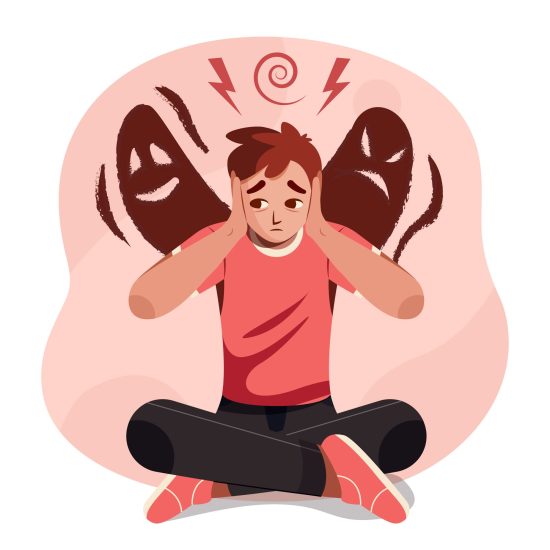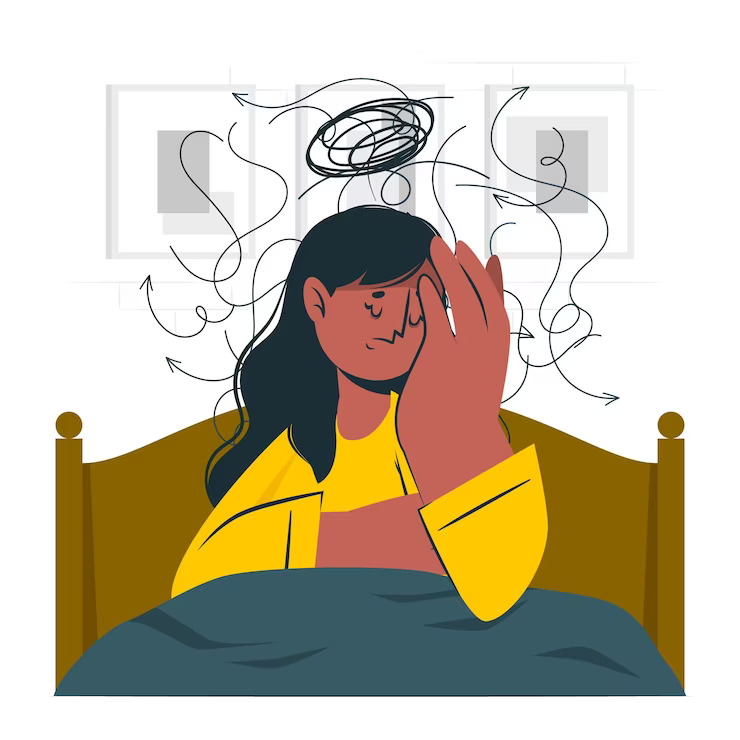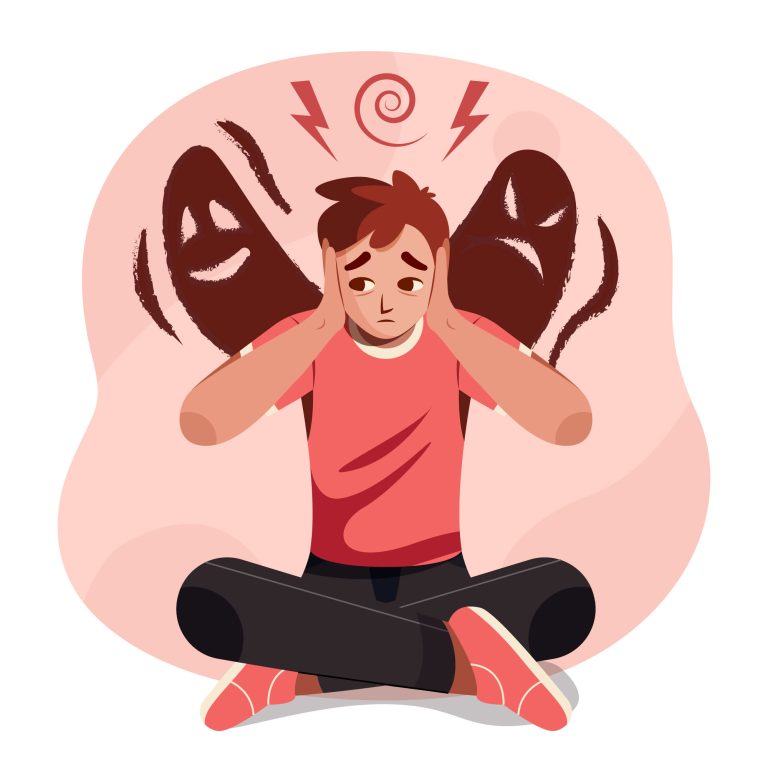
Anxiety In Teenagers And Its Significance
Adolescence is a crucial period marked by significant physical, emotional, and cognitive changes in an individual. Teenagers see these changes unfold rapidly, and they also notice a shift in how they are viewed by others around them.
Many teenagers feel like they are stuck in a grey zone, where they are neither a child, nor an adult. While many adolescents become well-adjusted to this shift, others tend to feel an immense pressure while trying to fit in and navigate through their adolescent years.
The teenage experience of adolescence can be complicated and certainly confusing. Therefore, it is quite common for them to experience anxiety during this stage. This article focuses on understanding what causes anxiety among teenagers, and the significance of it.
Top Common Causes of Anxiety in Teenagers
- Academic Pressure: Many teens go through immense pressure from the family to perform well academically. This can cause teens to place unrealistic, high expectations for themselves. Additionally, being in a competitive academic space can also trigger feelings of inadequacy and comparison, which leads to anxiety.
- Social Acceptance: Social validation and acceptance are highly important to teenagers. Being socially isolated by their peers, or the fear of it can cause excessive worry about not being liked by everyone.
- Bodily Changes: One of the most externally visible changes in a teen during adolescence is bodily, or physical. Adjusting to a new frame takes time and can come with a lot of internal and external judgement. This can also cause extreme worry or body insecurities.
- Social Media: Social media has now become an indispensable part of many teenagers’ lives. Social media provides ample opportunities for social validation- through likes and comments. This can cause many teens to associate their self-worth with the numbers on social media. An over-reliance on social media for social validation, and comparing their lives with others, can cause anxiety and low self-esteem.
- Negative Experiences: Having negative, traumatic experiences, like losing a loved one, going through physical, emotional, or sexual abuse, and bullying, can cause severe anxiety.
- Interpersonal Relationships: During adolescence, teens can find a change in how they interact with their family, friends, and in other relationships. For instance, due to the shifting roles at home, teens no longer resonate with the title of being “the child,” while the parent still views them as one. This can cause frustration, anger, and ultimately conflicts in the family. Also, during teenage, there is a shift in how relationships are approached. Teens may begin to show romantic interests and may begin dating. Handling newer experiences in relationships can be daunting, and anxiety can be an expected outcome of this fear.
- Worry about the future: Teens may experience worry about multiple things in their future. They could feel anxious trying to picture how their life would look in terms of their career, lovelife, friendship, or just their future in general.
Importance Of Identifying And Addressing The Underlying Causes Of Anxiety In Teens.
Anxiety is a normal human experience. Everyone, from a child to an adult, can experience bouts of anxiety from time-to-time. Navigating through multiple shifts at once, as a teen, can be challenging. As a result, teens may experience anxiety while moving through these changes.
While some anxiety is normal, excessive worrying and anxiety during this stage can cause a multitude of physical, emotional, and social setbacks. Therefore, it is imperative to identify, address, and work towards understanding the cause of anxiety and resolve it.
Here are some of the reasons why it is important to work through anxiety in adolescence:
- It Helps With Understanding “The Self”
Teenagers tend to go through many physical and mental changes around adolescence. During this stage, their idea of “self” changes and they try to find an identity that they deeply resonate with. This process can bring in anxiety for many teens as they try to have an identity that stands out, and is also relatable and similar to their peers.
A secure identity and a positive attitude towards oneself during this stage can make them well-adjusted adults in the future.
- It Helps With The Fear of Being Socially Isolated
Adolescence is also a stage where there are changes in the way teens interact with people. For teenagers, it is crucial for them to fit in and be liked by everyone. Having different interests or being different from others can put them in a disadvantageous position. In such instances, many teens can feel anxious, as not fitting in could affect their identity. This internal discomfort can lead to social anxiety or anxiety of not being liked. Working with this anxiety is important as it helps you learn the skills necessary to hold interpersonal relationships and connect with people.
- It Helps With Understanding Your Emotions Better
As a person moves from childhood to adolescence, they are introduced to many new, complex emotions. As the situations and their environment begin to change, so do their responses. Teens can sometimes feel overwhelmed by what they feel. As a child they would have a single, monotonous emotion, but as they grow older, emotions can get more difficult to differentiate. This confusion towards their own feelings can cause anxiety, and resolving and understanding this anxiety can improve the teen’s perception of their emotions, which is also known as “emotional literacy.”
- It Helps With Improving Your Familial and Interpersonal Relationships
Working through the anxiety during teen years can also improve familial and interpersonal relationships. As the teen becomes aware of their anxiety and other uncomfortable emotions, they start to become more articulate about these emotions. Communicating about their feelings with their loved ones can create a positive dialogue and build a better relationship with them.

Being a teenager can be confusing and difficult.
Get the support you need to live a happier, healthier life with our online Teen Counseling services.
Conclusion
For a teenager, adolescence is a confusing and worrying phase of their life. Teenage brings with it opportunities for growth and learning. However, anxiety, and a fear of uncertainty can hold many adolescents back.
Working with this anxiety and overcoming fear can make the teenager more confident, well-adjusted, and can help them transition smoothly into adulthood.
Therefore, seeking help for working on anxiety by sharing your feelings with a loved one, or seeking professional help can bring great changes into the teen’s life. Anxiety management therapy online can be a great outlet for many teenagers to understand and process the difficulties of teenage life and learn the skills to be prepared for this stage.
Teenagers can experience anxiety through multiple sources. Fortunately, anxiety is resolvable, and there is help available. If you are interested in looking at some of the free mental health resources we have compiled for teens, please click here.
About the Author
This article was written by Parvathi Ganesan, Counselor at Inner Space. This post was consulted & approved by professional therapists practicing online therapy and counseling.
Ask a Therapist
If you are interested to know about any mental health topics, ‘Ask A Therapist’ is a platform for you to ask your questions related to Mental Health, Mindfulness & Emotional Well-Being to our team of qualified Therapists.




